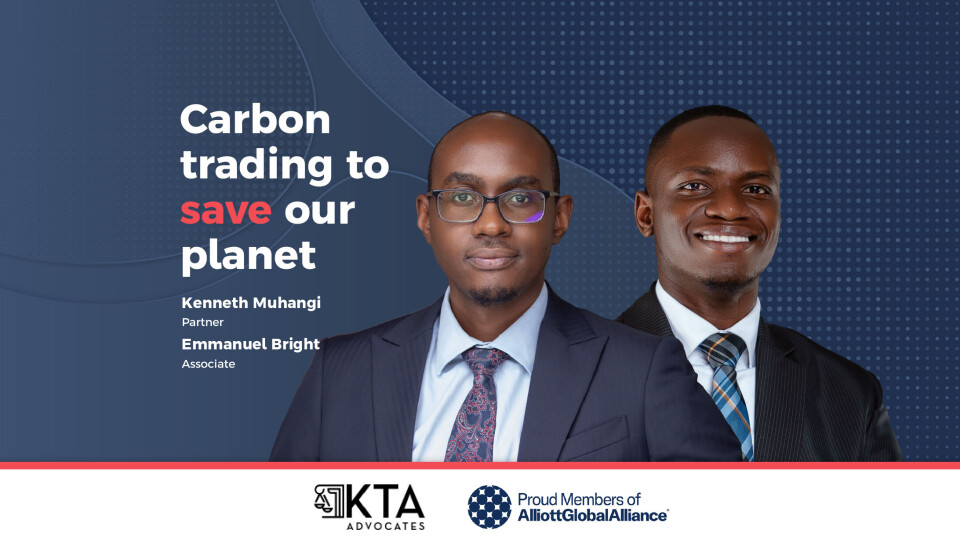The conversations around carbon credits and climate change can sometimes come across as too complex or removed from the issues facing everyday people, in Africa and globally, but they’re vitally important and affect everyone, say Kenneth Muhangi and Emmanuel Bright.
“Climate change is not just a buzzword, it’s a real thing, and these measures or mechanisms like carbon credits and carbon trading are meant to help us to see how we can save our planet,” says Muhangi, a sustainability expert and partner at leading Ugandan firm KTA Advocates. “But since we are also commercial beings, we can’t divorce ourselves from that reality, and it’s important to understand how carbon markets or credits can relate to you.”
Over 8-9 May, 2025, various stakeholders will gather in Kampala for the second East Africa Carbon Markets Forum, a dynamic platform that aims to unlock opportunities for sustainable development through knowledge exchange, collaboration, and actionable discussions.
The setting is fitting.
Uganda is helping to lead the charge across Africa for carbon trading and combatting climate change, say Muhangi and Bright, with its combination of an active carbon market industry, being “a huge carbon sink”, and having the political will to address the issues.
Uganda ratified the UN Framework Convention on Climate Change in 1993, then later the Kyoto Protocol and the Paris Agreement, which introduced mechanisms such as carbon credits and the trading of credits between carbon emitters and carbon mitigation projects. It also enacted the National Climate Change Act in 2021 to provide for climate change response measures, participation in climate change mechanisms, measuring of emissions, reporting and verifying, institutional arrangements for coordinating and implementing climate measures, and more.
However, there are many challenges to navigate, as well as opportunities.
“We have a very big gap in infrastructure and institutional capacity, and do not yet have the legislation in place to enable the carbon markets in Uganda,” says Bright, an associate at KTA Advocates, which is also part of the Alliott Global Alliance, an elite coalition of top legal and accounting experts in 225 firms across some 100 countries. “We need to have different regulators in place, and need private sector actors to bring funding to projects.”
There is plenty of carbon trading in Uganda, notes Muhangi, but it is currently unregulated locally with key law reforms pending but not yet passed. “We have players operating who are selling carbon credits as part of carbon projects, but we don’t have an operational licensing framework for these projects.”
Collaboration is vital, say Muhangi and Bright, including cooperation among East African nations, making the upcoming forum an ideal vehicle for discussing and pushing forward a collaborative purpose and move towards cooperating on carbon markets in the region.
There are challenges to overcome, with Africa playing catch-up with Europe on climate change regulations and less carbon-intensive manufacturing, and public (mis)perceptions about the effectiveness of sustainability measures, there are also many opportunities. However, Bright notes studies show carbon trading has reduced carbon intensity in China and elsewhere. A study of the Beijing-Tianjin-Hebei region indicates carbon markets were key in reducing carbon intensity in that area by 14%..
KTA represents several players in the Ugandan carbon market space; their activities such as ceramic water filters or less carbon-intensive cookstoves for low-income households create employment as well as reducing carbon footprints.
“This all helps to improve livelihoods, while also reducing mortality rates and improving health,” says Bright. “So beyond the financial benefits, there’s actual real-life benefits for many people.
For more information on the East Africa Carbon Markets Forum, or to register or partner with the event, visit here.

